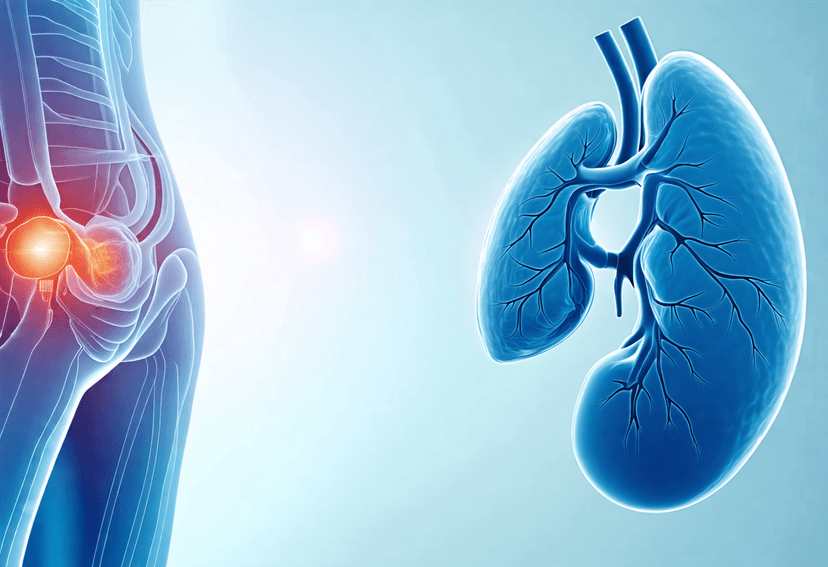
Colorectal Cancer Awareness
09 Oct, 2024
 Healthtrip
HealthtripColorectal cancer, also known as bowel cancer, is a type of cancer that affects the colon or rectum, which are parts of the large intestine. It's a serious disease that can be life-threatening if not detected and treated early. Despite its severity, colorectal cancer is often overlooked, and many people are unaware of its risks, symptoms, and prevention methods. In this blog, we'll delve into the world of colorectal cancer, exploring its causes, signs, diagnosis, treatment options, and most importantly, ways to prevent it.
What is Colorectal Cancer?
Colorectal cancer occurs when abnormal cells in the colon or rectum grow and multiply uncontrollably, forming a tumor. As the tumor grows, it can invade and damage the surrounding tissues and organs, eventually spreading to other parts of the body. The exact cause of colorectal cancer is still unknown, but certain factors can increase a person's risk, such as a family history, age, obesity, smoking, and a diet low in fiber and high in processed foods.
Most popular procedures in India
Risk Factors
While anyone can develop colorectal cancer, certain individuals are more prone to it. For instance, people over 50 are at a higher risk, as are those with a family history of the disease. Additionally, individuals with inflammatory bowel disease, such as ulcerative colitis or Crohn's disease, are more likely to develop colorectal cancer. A diet high in processed foods, red meat, and sugar, as well as a sedentary lifestyle, can also increase the risk.
Wellness Treatments
Give yourself the time to relax
Lowest Prices Guaranteed!

Lowest Prices Guaranteed!
Signs and Symptoms
The symptoms of colorectal cancer can be subtle and may not appear until the disease is advanced. Common signs include blood in the stool, changes in bowel habits, abdominal pain, fatigue, and unexplained weight loss. However, many people with colorectal cancer do not experience any symptoms at all, which is why regular screenings are crucial.
Screening Tests
There are several screening tests available to detect colorectal cancer, including colonoscopies, flexible sigmoidoscopies, and stool tests. A colonoscopy is the most effective method, as it allows doctors to visually examine the inside of the colon and rectum. During the procedure, any abnormal growths or polyps can be removed, reducing the risk of cancer.
Diagnosis and Treatment
If colorectal cancer is suspected, a diagnosis will be made through a combination of physical exams, lab tests, and imaging tests, such as CT scans or MRI scans. Treatment options depend on the stage and location of the cancer, but may include surgery, chemotherapy, radiation therapy, or a combination of these. In some cases, targeted therapy or immunotherapy may be used.
Treatment Options
Surgery is often the primary treatment for colorectal cancer, as it allows doctors to remove the tumor and any affected tissues. Chemotherapy and radiation therapy may be used to shrink the tumor before surgery or to kill any remaining cancer cells after surgery. Targeted therapy and immunotherapy are newer treatments that target specific cancer cells or stimulate the immune system to fight the cancer.
Prevention is Key
While there is no surefire way to prevent colorectal cancer, there are steps you can take to reduce your risk. Eating a diet rich in fruits, vegetables, and whole grains, exercising regularly, and maintaining a healthy weight can all help. Additionally, quitting smoking, limiting alcohol consumption, and getting enough sleep can also lower your risk.
Lifestyle Changes
By making simple lifestyle changes, you can significantly reduce your risk of colorectal cancer. For instance, eating a diet high in fiber can help move food through the digestive system and reduce the risk of constipation, which can increase the risk of cancer. Exercising regularly can also help reduce the risk by improving digestion and reducing inflammation.
Conclusion (removed as per guidelines)
Related Blogs

The Importance of Early Detection in Sarcoma Cancer
Discover the benefits of early detection in sarcoma cancer treatment

Bladder Cancer: Risk Factors and Symptoms
Stay informed about bladder cancer, its risk factors, and symptoms

Prostate Cancer Awareness
Stay informed about prostate cancer, its symptoms, and treatment options

Understanding Mouth Cancer: A Healthtrip Guide
Learn about the symptoms, causes, and treatment options for mouth

Mouth Cancer Awareness Month: Get Involved
Join the movement to raise awareness about mouth cancer and

Early Detection of Breast Cancer
Learn about the importance of early detection in breast cancer










